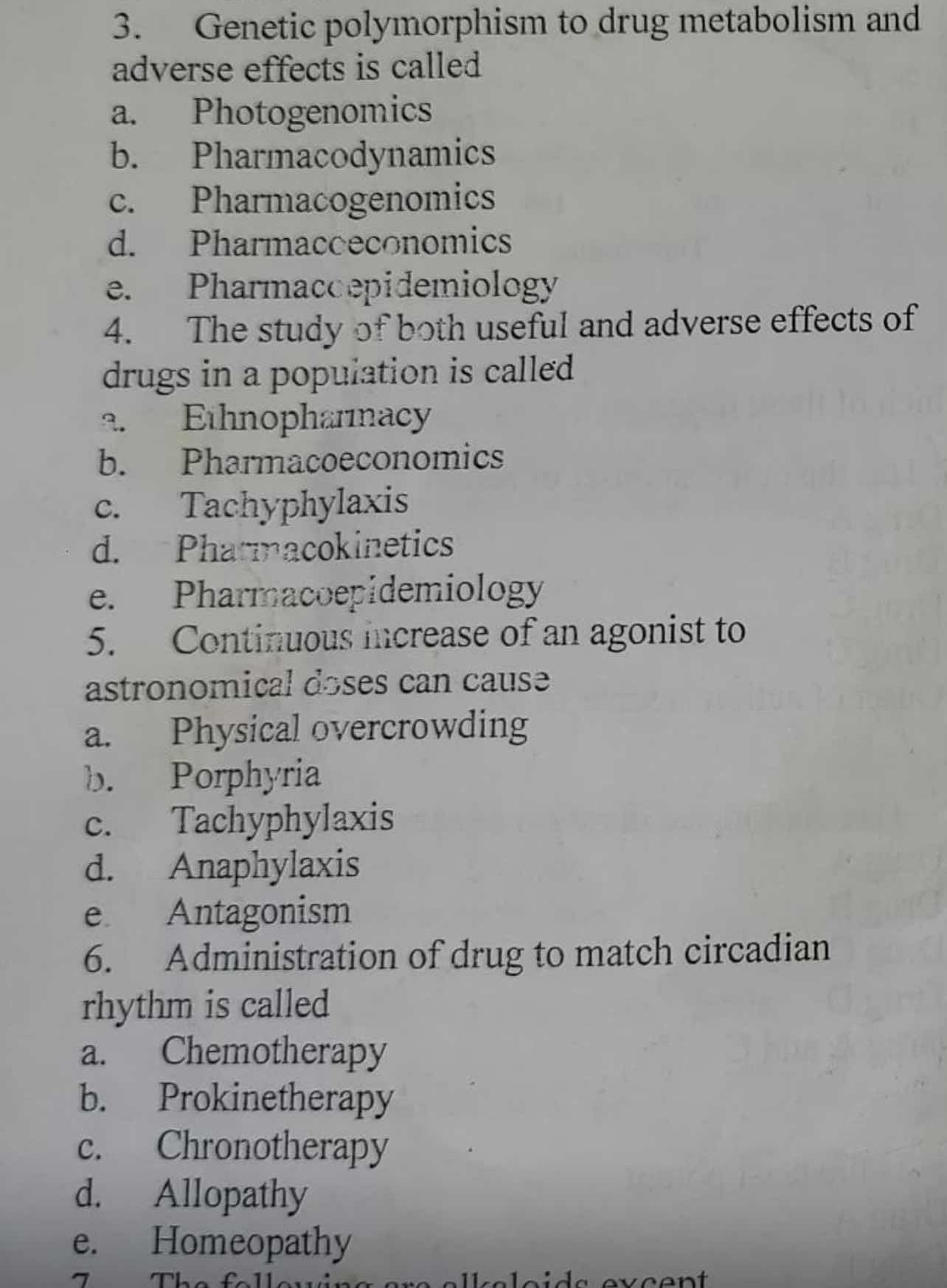1. Genetic polymorphism to drug metabolism and adverse effects is called? a. Photogenomics b. Pharmacodynamics c. Pharmacogenomics d. Pharmacoeconomics e. Pharmacoepidemiology 2. T... 1. Genetic polymorphism to drug metabolism and adverse effects is called? a. Photogenomics b. Pharmacodynamics c. Pharmacogenomics d. Pharmacoeconomics e. Pharmacoepidemiology 2. The study of both useful and adverse effects of drugs in a population is called? a. Ethnopharmacy b. Pharmacoeconomics c. Tachyphylaxis d. Pharmacokinetics e. Pharmacoepidemiology 3. Continuous increase of an agonist to astronomical doses can cause? a. Physical overcrowding b. Porphyria c. Tachyphylaxis d. Anaphylaxis e. Antagonism 4. Administration of drug to match circadian rhythm is called? a. Chemotherapy b. Prokinetherapy c. Chronotherapy d. Allopathy e. Homeopathy

Understand the Problem
The question presents a series of multiple choice items related to pharmacology and medicine, asking for definitions or classifications of terms and concepts in the field.
Answer
1. Pharmacogenomics 2. Pharmacoepidemiology 3. Tachyphylaxis 4. Chronotherapy
The final answer is 1. Pharmacogenomics 2. Pharmacoepidemiology 3. Tachyphylaxis 4. Chronotherapy
Answer for screen readers
The final answer is 1. Pharmacogenomics 2. Pharmacoepidemiology 3. Tachyphylaxis 4. Chronotherapy
More Information
Pharmacogenomics explores genetic factors impacting drug responses. Pharmacoepidemiology examines drug effects on populations. Tachyphylaxis describes reduced response to drugs over time, and chronotherapy aligns drug administration with biological rhythms.
Tips
Confusing pharmacogenomics with pharmacokinetics; misidentifying tachyphylaxis as anaphylaxis or antagonism.
Sources
- Genetic Polymorphisms, Drug Metabolism and Drug Concentrations - pmc.ncbi.nlm.nih.gov
- Pharmacogenetics and adverse drug reactions - PubMed - pubmed.ncbi.nlm.nih.gov
- What Is Pharmacogenomics (Pharmacogenetics)? - Cleveland Clinic - my.clevelandclinic.org
AI-generated content may contain errors. Please verify critical information